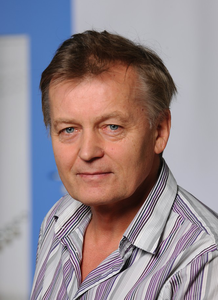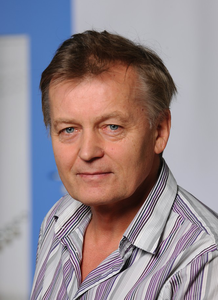€ 1.9 million EU grant for Mikhail Eremets from the Max Planck Institute for Chemistry
Dr. Mikhail Eremets from the Max Planck Institute for Chemistry has been awarded an Advanced Grant from the European Research Council end of October. The sum of € 1.9 million was granted for exploring conductive and metallic hydrogen. In his project, Eremets plans to study molecular hydrogen under extremely high pressure conditions with the objective of achieving its metallic state and thus its superconductivity.

A central part of this project is the study of hydrogen at record pressures of up to 440 GPa (4.4 Megabars). Such high pressures have been achieved recently by Eremets and his team with a special diamond anvil cell. This pressure, which exceeds that at the center of the Earth corresponds to that calculated to transfer hydrogen into its metallic state. In addition to studying metallic hydrogen directly, the Max Planck researcher intends to investigate hydrogen-rich compounds such as silane (SiH4), methane (CH4), and other molecules. These materials are expected to metallize at much lower pressures than pure hydrogen, and indeed, superconductivity was recently detected for silane. “The ERC grant is a great honor and I hope to approach basic questions about metallic hydrogen which astrophysicists see as the main constituent of giant planets and stars”, Eremets stated.
About the ERC grant
The European Research Council (ERC) funds every year excellent research projects in any scientific discipline, aiming at broadening the scientific and technological knowledge ("frontier research"). Top researchers of any nationality and from anywhere in the world can apply, as long as their ERC project will be carried out in a public or private institution based in Europe (EU Member State or Associated Country). The grants are for up to 5 years. The Advanced Grant aims at top research leaders, with at least 10 years of experience and significant research achievements.
About the Max Planck Institute for Chemistry
At the Max Planck Institute for Chemistry, around 230 staff explore the Earth and its environment across a range of scales, from nanoparticles to planets, and from ecosystem dynamics to global climate change. Three departments investigate the Earth System in field studies, under laboratory conditions in and through computer modeling systems. In this way, the institute contributes knowledge and methods needed for the sustainable use of natural resources and environmental protection. It is also committed to science education through an International Max Planck Research School and E-learning program.
